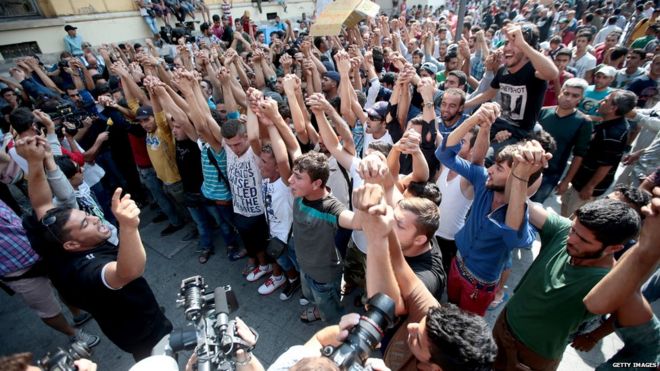From the New York Times:
No One Knows What Britain Is Anymore By STEVEN ERLANGER NOV. 4, 2017
… The divisions in the society — over Brexit, over politics — are both a function and a result of Britain’s confusion about its identity and global importance. The 19th-century myth of Britain as the “workshop of the world,” a doughty Protestant nation surrounded by Catholics with an empire on which the sun never set, confronted a post-World War II reality, when a lot of these tales stopped being true, suggests Mark Leonard, director of the European Council on Foreign Relations.
Britain became a service economy, the empire disappeared and people stopped identifying with the Church of England. Then Margaret Thatcher arrived, and with her, Mr. Leonard said, “there was a last gasp of this old identity — an ethnic, exclusively white and backward-looking version of Englishness.”
However successful, it also excluded an increasingly large number of Britons — black, Asian and Muslim — who felt disenfranchised from “the national story.” Tony Blair and New Labour moved toward more inclusiveness and cosmopolitanism and openness to Europe, too.
My recollection was that the divide over Thatcherism was that it primarily excluded a lot of coal miners and other trade union members. But I guess now all that dreary stuff about class, ideology, and the ownership of the means of production has been retconned into a modern ethnic battle between Nativist Thatcher from ultra-Protestant Finchley (and her Protestant cohorts like her idea man Keith Joseph) and the forces of Diversity.
There really weren’t all that many “black, Asian, and Muslim” “Britons” in 1979. This was before the Labour cabinet decided to secretly invite in lots more immigrants to rub the Tory noses in Diversity.
But those validated by the old identity then felt like strangers in their own land, Mr. Leonard said. “Their revenge was Brexit.”
 I sort of think the German Chancellor deciding on a personal whim to sponsor a vast Muslim hegira into Europe in 2015 had something to do with the events of 2016, such as Brexit and Trump’s election. But that’s just me. Merkel goes unmentioned in this article.
I sort of think the German Chancellor deciding on a personal whim to sponsor a vast Muslim hegira into Europe in 2015 had something to do with the events of 2016, such as Brexit and Trump’s election. But that’s just me. Merkel goes unmentioned in this article.
Confused and divided, Britain no longer has an agreed-upon national narrative, said Charles Grant, director of the Center for European Reform. “In the 2012 Olympics we had one,” he said. “Global Britain, open Britain, generous Britain.” But now there is a competition between that narrative and the nativist one.
Mr. Grant, like others who have spent their careers watching British and European politics, predicts rough seas for Britain as it casts off nearly 45 years of intimate trade and legal ties with those annoying Europeans.
“Everywhere I go,” he said, “people are asking me, ‘What’s wrong with your country?’ ”
Steven Erlanger, the chief diplomatic correspondent for The New York Times, just completed four years as London bureau chief.
Erlanger hates the pro-Arab Jeremy Corbyn. But despite all his years in Britain, where Jews vote about 75% Tory, Erlanger really can’t overcome his indoctrination in America’s Lazarene Creed about immigration as a sacred civil right for the rest of the world.
I have this crazy compromise suggestion for saving the European Union: Europeanism. Act like the European Union exists to benefit Europeans more than it exists to benefit, say, Eritreans and Afghans who want to colonize Europe. Act like the European Union exists to defend Europeans rather than to undermine them and you might be surprised by how much less unpopular the EU becomes among Europeans.
But as far as I can tell, such a longshot idea is more or less inconceivable to people like the chief diplomatic correspondent of the New York Times.
[Comment at Unz.com]